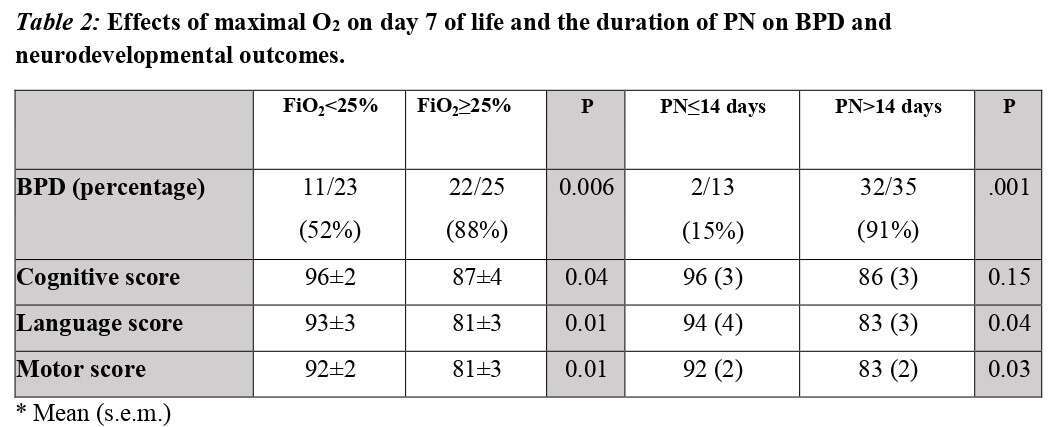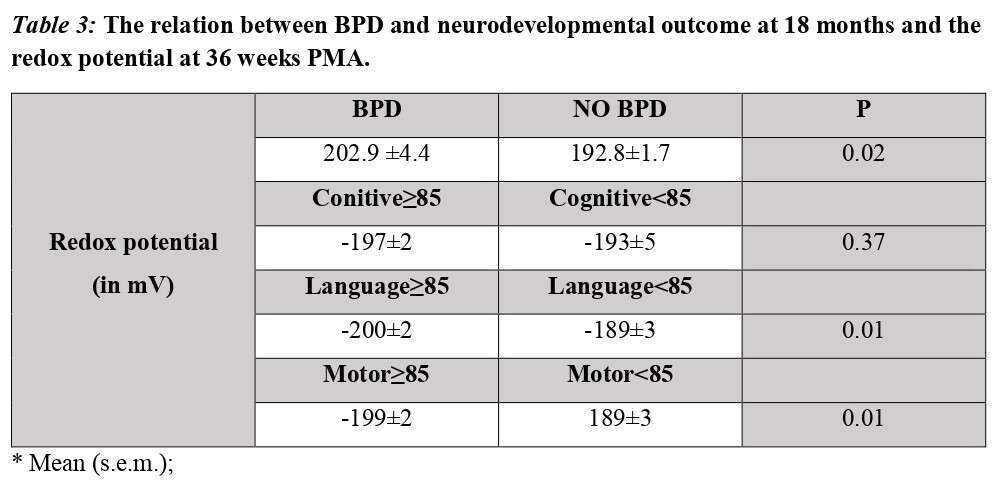
Is Early Oxidative Stress the Common Origin of Both Bronchopulmonary Dysplasia and Impaired Neurodevelopment in Preterm Infants Less Than 29 Weeks of Gestation?
Background: Preterm infants are exposed to many oxidants early in life. They have limited antioxidant capacity. Early oxidative stress is involved in bronchopulmonary dysplasia (BPD) development. Studies confirme the association between BPD and impaired neurodevelopmental outcome.
Hypothesis/Objectives: We hypothesis that early oxidative stress has multiorgan negative effects on the lung and the neuro-development. Specific objectives: To examine the effect of early oxidants on the oxidative stress at 36 weeks gestational age (GA) and to test its relationship with both BPD and neurodevelopment.
Design and methods: A prospective cohort study included 51 infants 2 ≥25% on day 7 of life and parenteral nutrition (PN) duration >14 days. t-student test, Chi2 and logistic regression were used as appropriate. Baseline characteristics, BPD and Bayley-III at 18 months corrected age were collected. P
Results: The effect of early oxidants on oxidative stress markers at 36 weeks PMA is shown in Table 1.
There was a significant association between exposure to early oxidants and BPD and impaired neurodevelopment Table 2.
Increased oxidative stress at 36 weeks PMA was associated with both BPD and neurosevelopmental impairment Table 3.
In a logistic regression including GA, illness severity score and maternal education; the redox potential at 36 weeks PMA remained a significant independent factor for motor Bayley score (P=0.036) and any Bayley score
Conclusion: Early exposure to oxidants results in oxidative stress that increases the risk of both BPD and neurodevelopmental impairment. We speculate that strategies to re-establish oxidant -antioxidant balance can improve both short and long-term outcomes in infants less than 29 weeks GA.
Powered by Eventact EMS